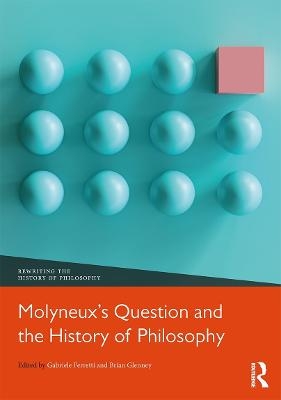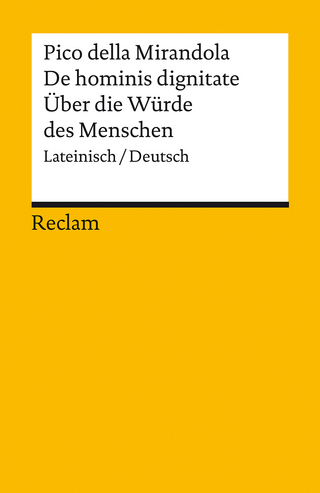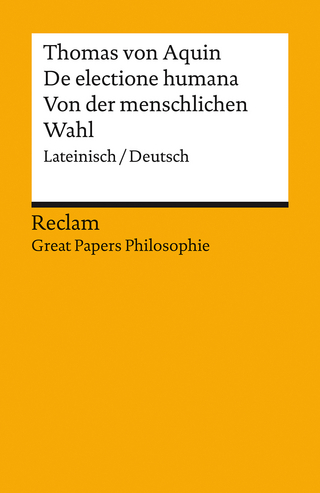
Molyneux’s Question and the History of Philosophy
Routledge (Verlag)
978-0-367-03092-6 (ISBN)
In 1688 the Irish scientist and politician William Molyneux sent a letter to the philosopher John Locke. In it, he asked him a question: could someone who was born blind, and able to distinguish a globe and a cube by touch, be able to immediately distinguish and name these shapes by sight if given the ability to see?
The philosophical puzzle offered in Molyneux’s letter fascinated not only Locke, but major thinkers such as Leibniz, Berkeley, Diderot, Reid, and numerous others including psychologists and cognitive scientists today. Does such a question represent a philosophical puzzle or a problem that can be solved by experimental tests? Can vision be fully restored after blindness? What is the relation between vision and touch? Are the senses linked through learning or bound at birth?
Molyneux’s Question and the History of Philosophy is a major collection of essays that explore the long-standing issues Molyneux’s problem presents to philosophy of mind, perception and the senses. In addition, the volume considers the question from an interdisciplinary angle, examines the pre-history of the question, and aspects of it that have been ignored, such as perspectives from religion and disability.
As such, Molyneux’s Question and the History of Philosophy presents a set of philosophically rich, empirically informed, and scientifically rigorous original investigations into this famous puzzle. It will be of great interest to students and researchers in philosophy, psychology, and the cognitive sciences including neuroscience, neurobiology and ophthalmology, as well as those studying the mind, perception and the senses.
Gabriele Ferretti is a NOMIS Fellow at the Eikones – Center for the Theory and History of the Image at the University of Basel, Switzerland. Brian Glenney is Assistant Professor in the Philosophy Program at Norwich University, USA. He is co-editor of The Senses and the History of Philosophy (Routledge, 2019).
Part I: Historical Advances in Molyneux’s Question Introduction to Part I 1. Epicureanism and Molyneux's 2. Molyneux, Mysticism, Empiricism, and Independent Thinking 3. A Spinozistic Answer to Molyneux's Question 4. Amo on Molyneux's Question 5. Margaret Cavendish and Molyneux’s Question: Patterning, Perception, and Touch 6. Damaris Masham and Molyneux’s Question: What Response would Masham have given? 7. Molyneux’s Question: The Irish Debates 8. Molyneux’s Question at the Erasmiaans Gymnasium, Rotterdam 9. Molyneux's Vision Part II: Ethical Advances in Molyneux’s Question Introduction to Part II 10. The Cult of the Born Completely Blind Man, Revisited 11. The Molyneux Cult Part III: Empirical Advances in Molyneux’s Question Introduction to Part III 12. Molyneux's Question and the Semantics of Seeing 13. Molyneux's Question and Neuroscience of Vision 14. No Yes Answers to Molyneux Part IV: Philosophical Advances in Molyneux’s Question Introduction to Part IV 15. Molyneux’s Question and Interpersonal Variations in Multimodal Mental Imagery among Blind Subjects 16. Molyneux’s Question and Perceptual Judgments 17. Action at First Sight 18. Molyneux’s Question and Somatosensory Spaces 19. Molyneux on LSD 20. What Was Molyneux’s Question a Question About?
| Erscheinungsdatum | 17.09.2020 |
|---|---|
| Reihe/Serie | Rewriting the History of Philosophy |
| Zusatzinfo | 30 Illustrations, black and white |
| Verlagsort | London |
| Sprache | englisch |
| Maße | 174 x 246 mm |
| Gewicht | 762 g |
| Themenwelt | Geisteswissenschaften ► Philosophie ► Philosophie des Mittelalters |
| Geisteswissenschaften ► Philosophie ► Philosophie der Neuzeit | |
| ISBN-10 | 0-367-03092-6 / 0367030926 |
| ISBN-13 | 978-0-367-03092-6 / 9780367030926 |
| Zustand | Neuware |
| Informationen gemäß Produktsicherheitsverordnung (GPSR) | |
| Haben Sie eine Frage zum Produkt? |
aus dem Bereich


